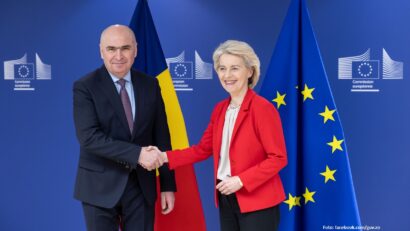International Support for Syria
Syrian donor conference on Thursday pledged 11 billion dollars in aid to people affected by the war in the region.

Bogdan Matei, 05.02.2016, 13:25
UN agencies dealing with the humanitarian crisis in Syria are to receive 11 billion dollars from donor countries by 2020. The money was pledged during a conference held in London on Thursday, where British Prime Minister David Cameron said the donors decided that half of the entire sum, six billion dollars be made available in the following months. Funds will mainly go into education programmes and the creation of fresh jobs.
Consequently, Syria’s neighbours, Jordan, Lebanon and Turkey have pledged to provide access to education to more than one million refugee children from Syria, the most vulnerable category to the Jihadist radical propaganda. The UN Secretary General Ban Ki-moon insisted that a labour market liberalization for the Syrian refugees by the states that are hosting them is vital.
Long term funding has also been taken into consideration so that Syria as well as other countries in the region, affected by armed clashes, can revitalize their economies, produce growth and rebuild infrastructure. The European Union will be doing everything in its power to grant a series of trade facilities to the countries that offered shelter to Syrian refugees, said the German chancellor, Angela Merkel, whose image has been severely affected by the decisions she made during the refugee crisis.
A relatively new and poor EU member, Romania has pledged 120 thousand dollars to the international community’s humanitarian efforts. Through a decision made on Wednesday, the technocratic cabinet in Bucharest has pledged this money as an emergency aid to the refugees. “Romania has joined the donor countries, and the humanitarian aid will go into UN coordinated programmes, such as the Syria Humanitarian Response Plan and the Regional Refugee and Resilience Plan, institutional instruments of cooperation between UN agencies, created after the refugee crises had worsened”, a government communiqué says. Pundits have hailed the decisions in London, having cautioned, though, that the sums pledged are far from covering the economic expenses of the war in Syria or its regional impact.
World Bank forecasts published on Thursday set these costs at 35 billion dollars, but the magnitude of the humanitarian crisis remains incalculable. The conflict, which broke out in March 2011, following a series of peaceful demonstrations against President Bashar al-Assad, has so far caused the death of 260 thousand people and the displacement of over 13 million others. Syria is presently ravaged by war, fueled by the government troops and the rebels, on one side, and by the ruthless Islamic State militants, on the other.






























